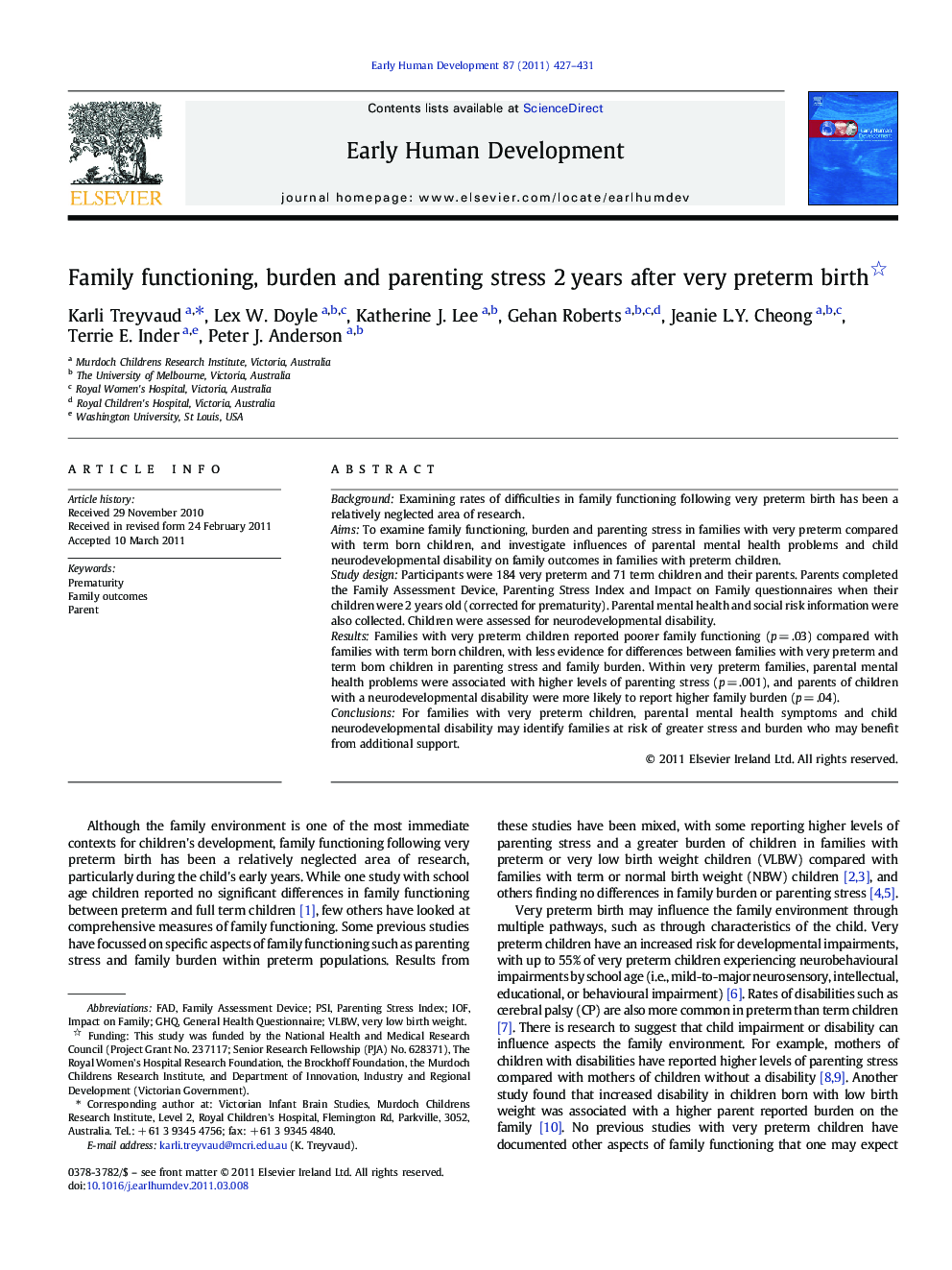| Article ID | Journal | Published Year | Pages | File Type |
|---|---|---|---|---|
| 3917527 | Early Human Development | 2011 | 5 Pages |
BackgroundExamining rates of difficulties in family functioning following very preterm birth has been a relatively neglected area of research.AimsTo examine family functioning, burden and parenting stress in families with very preterm compared with term born children, and investigate influences of parental mental health problems and child neurodevelopmental disability on family outcomes in families with preterm children.Study designParticipants were 184 very preterm and 71 term children and their parents. Parents completed the Family Assessment Device, Parenting Stress Index and Impact on Family questionnaires when their children were 2 years old (corrected for prematurity). Parental mental health and social risk information were also collected. Children were assessed for neurodevelopmental disability.ResultsFamilies with very preterm children reported poorer family functioning (p = .03) compared with families with term born children, with less evidence for differences between families with very preterm and term born children in parenting stress and family burden. Within very preterm families, parental mental health problems were associated with higher levels of parenting stress (p = .001), and parents of children with a neurodevelopmental disability were more likely to report higher family burden (p = .04).ConclusionsFor families with very preterm children, parental mental health symptoms and child neurodevelopmental disability may identify families at risk of greater stress and burden who may benefit from additional support.
